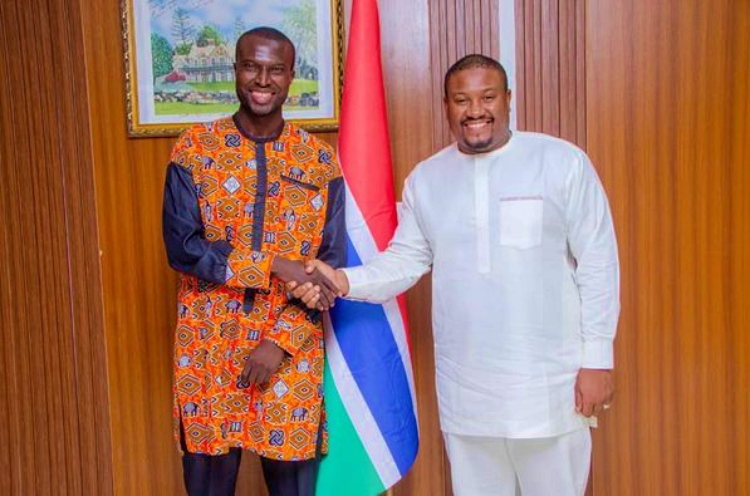Gambiaj.com – (Banjul, The Gambia) – United Democratic Party (UDP) leader Ousainou Darboe’s decisive declaration of his 2026 presidential ambition has abruptly ended weeks of speculation and internal wrangling over the party’s leadership direction.
Darboe’s statement, which came amid escalating calls for leadership renewal from a vocal segment of the UDP youth base, has visibly restored discipline to a party increasingly fractured by competing ambitions and ideological drift.
But while his intervention has compelled prominent supporters and young challengers to fall in line, observers of Gambian politics say it may only postpone – not resolve – deeper questions of succession and generational transition within The Gambia’s main opposition party.
Notably, his longtime critics and advocates for internal change – including party militant Nanama Keita and renewal advocate Yunus Hydara – have publicly accepted his candidacy, albeit in tones laced with resignation and realism.
“Baba has spoken. We shift gears,” Hydara posted, signaling reluctant acceptance.
Even Keita, who for months stirred debate around Darboe’s long tenure and the party’s generational stagnation, quoted Black Panther to underscore the cost of failing to prepare for succession.
His metaphor of “placing loose clothing over an eight-month unwanted pregnancy” reflects a belief that Darboe’s decision merely defers an inevitable and difficult reckoning.
Yet, that reckoning has been shelved – for now.
Darboe’s intervention appears to have had a galvanizing effect on party structures. Brikama Area Council Chairman Yankuba Darboe proclaimed loyalty swiftly: “Our Baba has spoken, and he is our candidate! May Allah grant us victory in 2026.”
Online supporters echoed the urgency of unity, with one Facebook post reading, “2026 is not just an election – it’s a reckoning. Let’s make it count.”
Still, the speed with which dissent evaporated raises questions about the durability of this apparent unity. Many of the young reformers who had quietly positioned themselves as future leaders are now left in a politically awkward limbo.
With Darboe back at the helm, their ambitions are shelved – not extinguished. The silence of Kanifing Mayor Talib Bensouda, widely seen as a rising star and potential successor, speaks volumes.
While others rallied around Darboe, Bensouda opted to spotlight municipal achievements, sidestepping the succession storm altogether.
Some political observers interpret Bensouda’s restraint as strategic distancing – signaling neither defiance nor endorsement – and a recognition that the internal contest for the party’s future leadership has only been delayed.
Darboe’s reaffirmation of control stabilizes the UDP in the short term, especially as it gears up for a pivotal showdown with President Adama Barrow’s increasingly unpopular administration.
But by refusing to allow a genuine contest for leadership – or by failing to lay out a transition plan – the UDP may be trading short-term unity for long-term uncertainty.
“Darboe has united the party for 2026, but he hasn’t solved its existential problem,” one diehard supporter of the UDP told this medium. “What happens in 2027 if he loses again – or even if he wins? That’s the question the UDP still has no answer to.”
With 2026 framed as a “reckoning” by its own supporters, the UDP may find that the deeper reckoning – over generational change, institutional renewal, and political vision – still awaits, just over the horizon.










